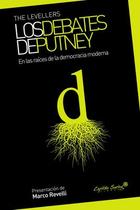In the Presbyterian church of the small suburb of London, where the revolutionary army led by Cromwell and Fairfax had camped in late October 1647, in the gloom broken by the fire of torches, between the smell of leather and hay, soldiers, officers and generals, in open and free discussions, had laid the conceptual foundations of our modern politics.
With more than a century of advancement to the French '89 and two centuries before '48 Europe, the first formulation originated in the history of a republican and democratic alternative to the monarchy. Under the fire of a sometimes dramatic confrontation, the fundamental categories of a society founded around the idea of a contract freely stipulated between citizens (i.e., l'Agreement of the People) and of a constitutional order guaranteed under the principle of popular sovereignty and universal suffrage had been forged.








